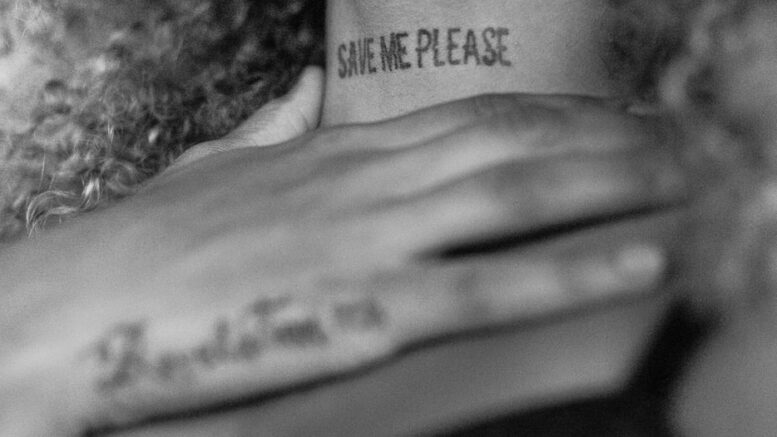How to Tell if Shortness of Breath is Caused by Anxiety, Not Another Medical Condition?
Anxiety is not something to be taken lightly. Though it is a natural bodily response, disproportionate anxious feelings can be a sign of an anxiety disorder.
One of the most common symptoms that you could experience if you have this condition is shortness of breath. When you get too overwhelmed by a stressor, this could be a physical manifestation.
Shortness of breath, or dyspnea, is a symptom that people with all kinds of medical conditions experience, though.
It could be related to asthma, heart problems, or even obesity. Ruling these out should be the first step in deciding if what you are feeling is anxiety.
Let’s take a look at how we can do this to properly address your situation.
What is shortness of breath?
Imagine inhaling deeply, but not having enough air to breathe in. The result of this is an uncomfortable feeling characterized by laborious breathing or a choking sensation.
Your chest might become tight, and your breaths might go faster than usual. Because your body needs more air, you start to gasp or hyperventilate. This is what shortness of breath looks like.
This experience is never pleasant. Seeing a doctor should be a priority when this occurs. As we have said, although anxiety is a likely culprit, you have to rule out other health problems first.
Whatever the cause, this is concerning so intentionally taking the right steps toward healing is essential.
What medical conditions are related to shortness of breath?
Shortness of breath does not automatically point to anxiety. Several other conditions could cause the same symptom.
- Allergies
- Anemia
- Asthma
- Chronic Obstructive Pulmonary Disease
- Guillain-Barré Syndrome
- Heart-related Conditions
- Lung Disease
- myasthenia gravis
- Obesity
- Pleurisy
- Pneumonia
- Pulmonary conditions
- Sarcoidosis
- Tuberculosis
How do I know if it is anxiety?
We all experience anxiety if there is a stressful situation. It is part of our body’s survival instincts. However, if you continue to feel anxious even if there is no apparent stressor, you might be suffering from an anxiety disorder.
Anxiety is characterized by excessive worry accompanied by several other symptoms that last for at least six months. One of the things to look out for maybe shortness of breath. If you are experiencing agitation and nervousness with some of these symptoms, your condition might be anxiety.
- Feeling restless
- Being irritable
- Tense muscles
- Lack of sleep
- Difficulty in concentration
- Increased heart rate
- Having panic attacks
What do I do when shortness of breath from anxiety happens?
When you find yourself experiencing shortness of breath due to anxiety, the worst case would be having a panic attack. Here are some ways to combat this.
1. Diaphragmatic Breathing
Also known as abdominal breathing, diaphragmatic breathing is a type of deep breathing exercise that allows you to let more oxygen in by using your diaphragm.
Start doing this by finding a comfortable position.
Place your hand under your ribcage, on top of your stomach. This will help you locate your diaphragm.
Take a deep inhale and while you do this, direct all your attention to where your hand is. You will notice that your diaphragm starts to move.
Exhale slowly and repeat the process. Concentrate on your breathing pattern until you feel better.
2. Grounding
This technique will help you relax and focus more on your surroundings.
Experiencing shortness of breath due to anxiety may get overwhelming at times, so when this happens, grounding exercises will help you stay in control.
This technique involves using mental distractions to shift your focus from the stressor. You can sing a song, play a game in your head, or say out your favorite line.
You can also focus on what is around you and concentrate on their details. This way, you prevent the cause of your shortness of breath to take over.
3. Going for a Walk
Going out for a walk has the same premise as grounding. It distracts you from your current stressor, allowing you to stop the shortness of breath.
However, when you go out and exercise your body, your heart rate increases a bit. Though this may sound counter-intuitive, this actually makes your body regulate itself. In turn, you are made to breathe normally.
On top of this, you release nervous energy from your body as well. Grounding and walking can work well together to stop panic attacks.
4. Mindfulness Meditation
Meditating has quickly gained popularity over the years.
Doing different mindfulness exercises help you be more aware of yourself and your surroundings. In turn, you become more aware of the potential causes of your anxiety.
This teaches you to be present and to let go of the worries that are beyond your control. Incorporating mindfulness meditation into your daily routine might be beneficial to your overall mental health, making you less prone to anxiety attacks.
You can look up your preferred exercise on the internet as there are many variations to choose from.
5. Finding a Pattern
Finding a way to address the shortness of breath brought about by anxiety can only be done if you know where it is coming from.
This may not always be apparent so noting down the trigger of the episode will be very helpful. Track what happens right before the occurrence of the symptom and what happened that made the episode end.
Take note of what is running in your mind as it is happening as well. When you look at all of the entries, later on, a pattern may emerge pointing to the root cause of your anxiety.
References
Abraham, M. (2020, October 10). How to Relieve Shortness of Breath from Anxiety. Calmclinic.com. https://www.calmclinic.com/anxiety/symptoms/shortness-of-breath
Optimist Minds. (2021, February 25). How To Tell If Shortness Of Breath Is From Anxiety? | OptimistMinds. OptimistMinds.com. https://optimistminds.com/shortness-of-breath-from-anxiety/
Patriot Daily Press. (2021, April 2). Breathe in: 7 Natural Ways to address dyspnea (shortness of breath). Patriot Daily Press.
See Also
How to keep mental health in check

Leezo is a registered psychologist and registered psychometician from the Philippines. In her clinical practice, she mainly uses Cognitive Behavioral Therapy, Solution-Focused Brief Therapy and Expressive Arts to treat a wide range of cases including but not limited to trauma, depression, anxiety, grief and burnout. Also a professor of psychology, Leezo teaches courses such as Experimental Psychology, Psychology of Learning and Psychological Assessment.
